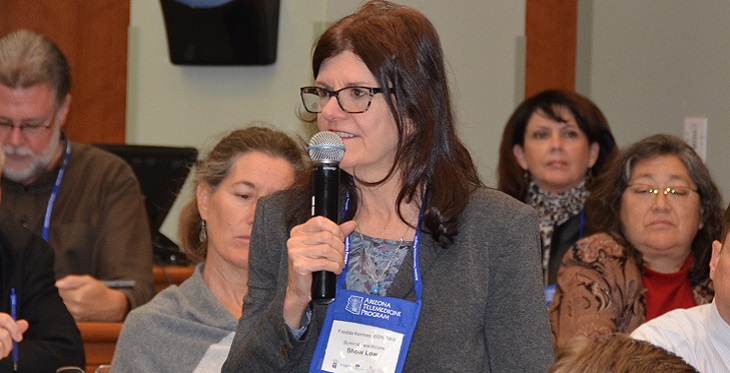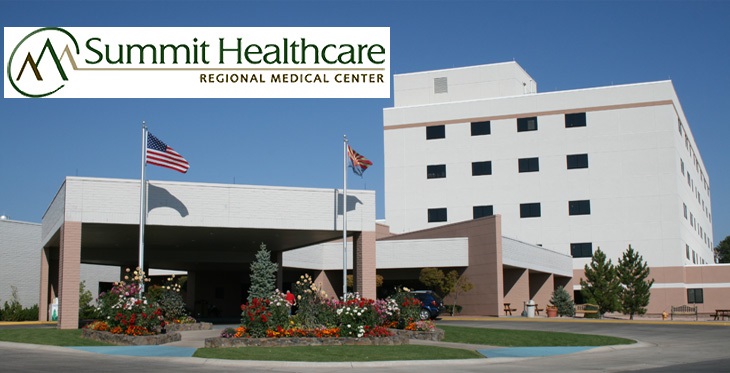Show Low is a city of about 11,000 in the White Mountains of northeastern Arizona, a summer vacation haven. The city got its name after a high-stakes poker game in which one of the players met the other’s challenge to “show low” with a deuce of clubs. The winner’s take was a 100,000-acre ranch. The game is said to have been played by “early settlers” of the city, which was founded in 1870.
But Show Low is becoming better known today for its Summit Healthcare Regional Medical Center, an 89-bed hospital serving a 3,300 square mile area. Services offered include a level-two nursery; cardiac care; home health care; general, vascular and plastic surgery; a cancer center that offers radiation and medical oncology; and wound care and hyperbaric center.
The hospital is equipped with an extensive and expanding list of telemedicine services. They were the beta site for Phoenix-based Banner Health’s telestroke and tele-neurology services. They have a tele-nursery program with a Phoenix-area neonatologist, and are planning to set up tele-perinatology. They also are exploring the option of implementing an e-visit program, which enables patients to visit with a doctor without leaving home.
Summit Healthcare is currently engaged in a wide-ranging, collaborative effort to expand behavioral health care services. The effort began with behavioral health planning and outreach grants, both from the federal Health Resources and Services Administration (HRSA).
Summit teamed up with Banner Behavioral Health in Mesa, Ariz.; the University of Arizona’s Arizona Telemedicine Program; Community Counseling Centers, Inc., which is a behavioral health-care provider serving Navajo County; and the Southwest Telehealth Resource Center to conduct a gap analysis and begin strategic planning.

Leading the effort for Summit is Fredda Kermes, Summit’s director of clinical projects, telemedicine and professional development.
“The community told us that behavioral health care and substance abuse issues were their major health-care concerns,” Kermes said. “At the same time, Navajo County did a health assessment, and behavioral health and substance abuse were one of the four main issues people identified.”
Summit has already made progress in its emergency department, partnering with Banner Telehealth to provide TeleBehavioral Health services in the emergency room and hospital. “We sometimes had to board people in the ER, while we found placements for them,” Kermes said.
And Community Counseling Centers is in the process of developing a Crisis Stabilization Facility for patients needing immediate psychiatric or behavioral health intervention.
“Our overall goal is to develop an integrated model of primary care and behavioral health care,” Kermes said. “We know behavioral health issues can be related to chronic disease management. When someone is dealing with chronic depression, anxiety and high blood pressure, their life is going to be shortened if they don’t manage it all well.”
The integrated care network will include Summit Healthcare, Banner Health, Community Counseling Centers and northern Arizona’s regional behavioral health authority, Health Choice Integrated Care, which on Oct. 1 replaced the regional’s previous behavioral health authority known as NARBHA.
“We certainly have a lot of irons in the fire right now,” Kermes said. “It’s going to be extremely busy when we start to implement more services.
“But we want to serve our community well, and we’re trying to make a big circle to connect all this together. It’s a big project, but it’s our vision.”

